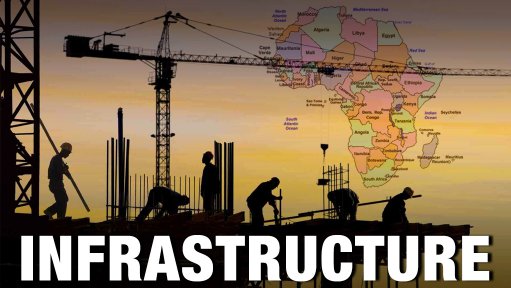
As South Africa’s government moves to strengthen its budget execution and improve in-year monitoring, while also bolstering infrastructure development, the National Treasury has proposed the establishment of a new facility to optimise large multiyear infrastructure project roll-outs that require funding, or other State support such as sovereign guarantees.
The first phase of the new budgeting facility for multiyear infrastructure projects beyond the three-year cycle of the prevailing medium-term expenditure framework, is expected to start in 2017, with the establishment of a technical unit and governing board.
The facility is expected to address shortcomings in the planning and execution of infrastructure projects, particularly as they relate to life-cycle budgeting, and operations and maintenance costs, and will assist government in building a pipeline of projects that have undergone rigorous technical analysis.
The technical unit will develop government-wide project design and evaluation guidelines that will be issued as a regulation by the National Treasury, with projects to be “rigorously appraised from inception until financial close”.
The reform will ensure that full life-cycle, multiyear budgeting takes place in a transparent manner through legislation that will govern funding, implementation and reporting requirements for very large projects, the National Treasury pointed out.
Further, government is working with municipalities to strengthen infrastructure and maintenance budgeting, with the City Infrastructure Delivery and Management System, developed by the National Treasury in collaboration with several cities, set to improve long-term infrastructure planning and asset management.
“Efforts to strengthen in-year monitoring of appropriated funds are also being stepped up. Over the past five years, unauthorised expenditure in departments and irregular, fruitless and wasteful expenditure in other public authorities have increased,” Treasury said on Wednesday.
The National Treasury has developed guidelines and will support departments and entities to improve the treatment and disclosure of such expenditure.
This is particularly relevant as government works to prioritise spending on water, housing, healthcare, education, social security and other constitutionally-mandated social rights.
Treasury also presented proposals to reduce national departments’ spending on noncore goods and services and had cut the budgets of some of the country’s parastatals.
“There are significant reductions in transfers to public entities, particularly those with large accumulated reserves. There will be large reductions in transfers to the South African Revenue Service, the Passenger Rail Agency of South Africa, the South African National Roads Agency Limited, the South African Social Security Agency, the National Housing Finance Corporation and the Water Trading Entity,” the Treasury outlined.
Large conditional grants to provinces and municipalities, including the human settlements development grant, the health facility revitalisation grant, the educational infrastructure grant, the water services infrastructure grant, the public transport network grant and the municipal infrastructure grant, besides others, are also being trimmed.
However, the 2017 Budget makes provisional allocations of about R14.6-billion for several specific programmes during the next budget cycle that support economic growth and social protection; however, the responsible department or State-owned enterprise will have to make representations for these funds.
These allocations will be dependent on the availability of resources and the robustness of the plans, as well as, in some cases, certain conditions being met.
These included R5-billion for higher education; R2.2-billion for South Africa Connect Phase 2; R1.6-billion for social development; R2-billion for business incentives for growth and job creation; R1.8-billion in local government equitable share allocations; R1-billion for the small business and innovation fund and R1-billion for the N2 Wild Coast road development.